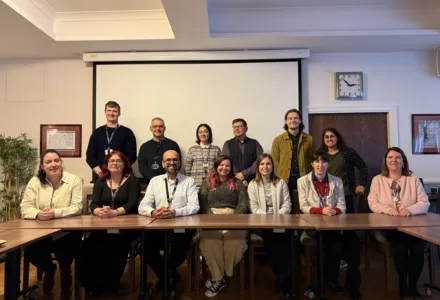LORIC has completed the first stage of an exploratory study in the state of Adult Literacy in Greater Lincolnshire.
The research, which was done in collaboration with the Lincolnshire County Council and was funded by Research England's Strategic Priorities Fund, was one of the first done at a regional level in over 10 years.
18 participants from organisations from all over the Local Enterprise Partnership area contributed their time and expertise to inform the findings. The report also cites open data from the ONS, the DfE, and the DWP, in order to give an estimate of the challenge.
Summary
The size of the problem is difficult to estimate, but 2020 data suggests that approximately 48.6% of the working-age population in Greater Lincolnshire held an NVQ level 2 qualification or below. Indeed, 14% of the population was found to hold an NVQ level 1 only, and 7.1% held no qualification whatsoever.
Barriers to improving adult literacy in Greater Lincolnshire manifest in a variety of ways, including but not limited to:
I.Lack of access to appropriate education and programmes.
II.Technology deployed in inefficient ways.
III.Systemic barriers to learners associated with gender, ethnicity, and learning difficulties.
IV.Particular challenges exist for adults for whom English is an additional language.
V.Poor levels of trust in services, stigma, and anxiety.
The impact of the challenges rooted in adult literacy levels in Greater Lincolnshire is far reaching and impacts multiple groups and industries - individuals, employers, and the economy at large.
Where we're going
I. In many cases, existing providers have the experience and capability to develop support for adult learners – resources are often the missing step.
II. Development of services that can work in collaboration with existing providers is important if the experience and capability is not available.
III. What is needed: Compassionate, bespoke, 1-to-1 functional skills building to help bridge the gap between apprenticeship requirements for adult learners; Development of more adult-appropriate literacy teaching and learning tools; Additional support for learners in rural areas; evening out provision between urban, rural and coastal areas; Compassionate, bespoke provision for learners in digital poverty; Development and strengthening of course provisions for EAL/ESOL learners at all levels.
IV. It is crucial for providers to build trust with learners and adopt a person-centric approach to the work.
The full report is now available to download on the LORIC CKAN site.
[Report funded by Research England's Strategic Priorities Fund]
Related Posts

Visits to BGU from Innovate UK

LORIC Wraps Up Successful SED Project

Innovate UK’s East Midlands Knowledge Exchange Forum hosted on BGU campus!

Understanding the Economic Impact and Future Potential of Greater Lincolnshire’s Sport, Physical Activity & Leisure Sector

LORIC Wins Venue of the Year Award

Digitising the Archive of the 20th Century Philosopher John Macmurray
